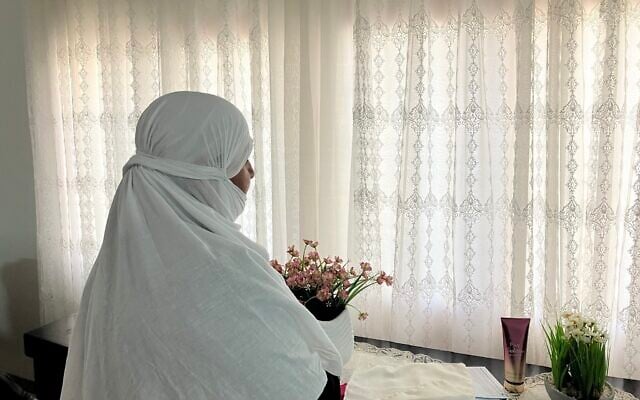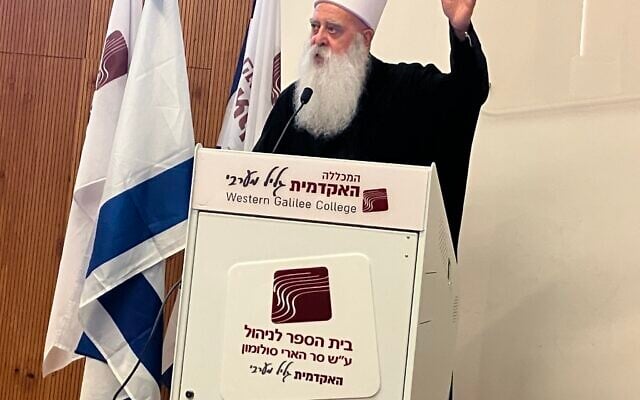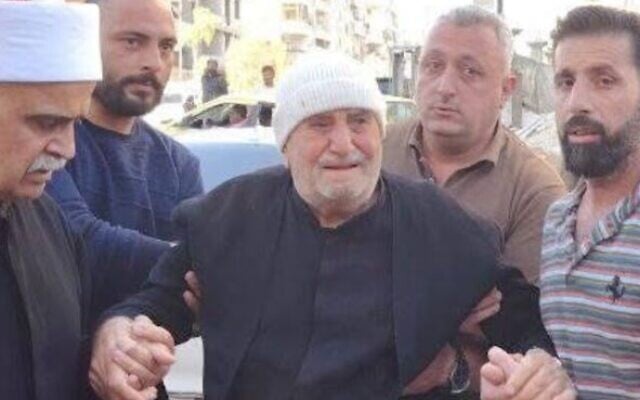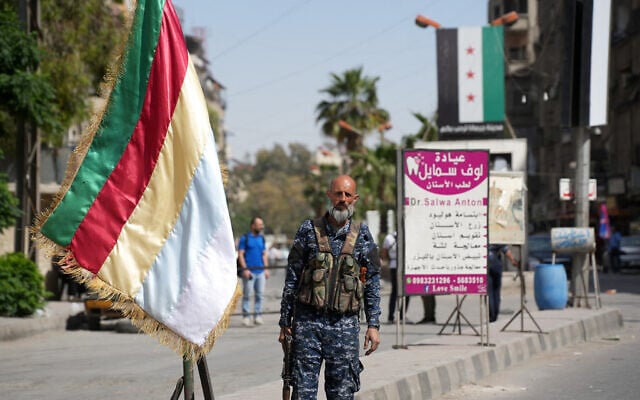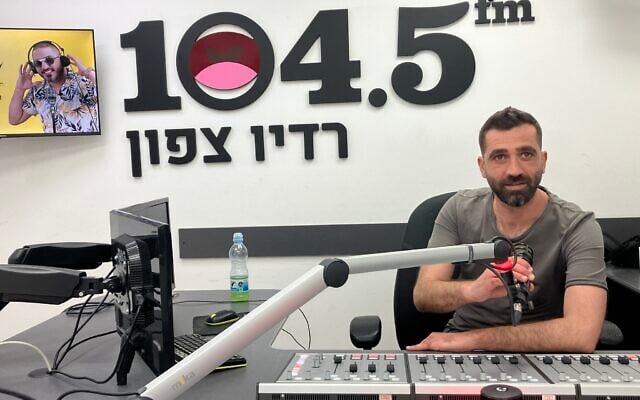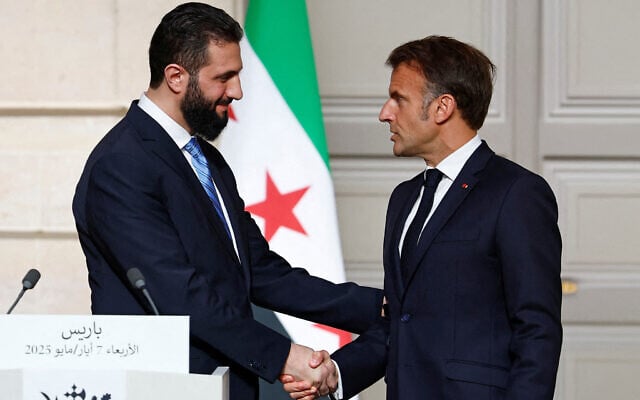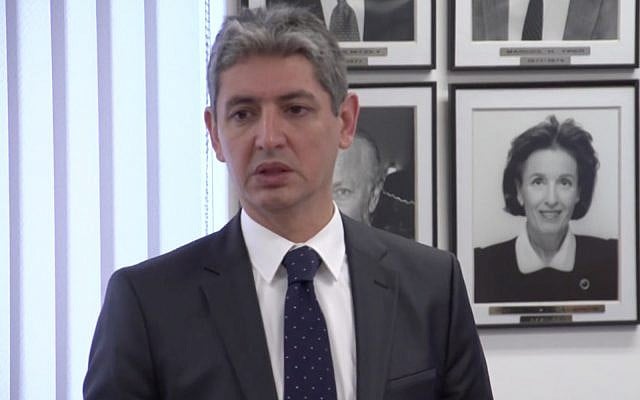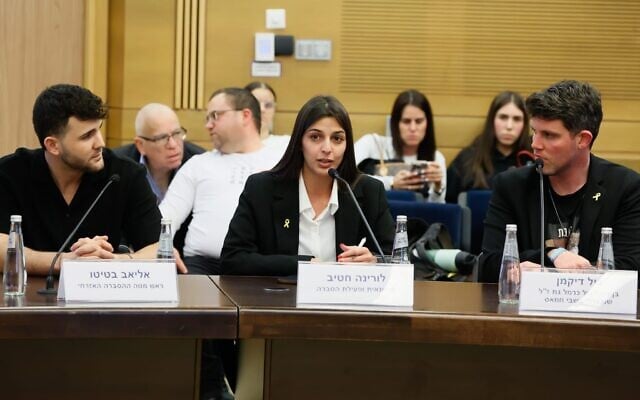


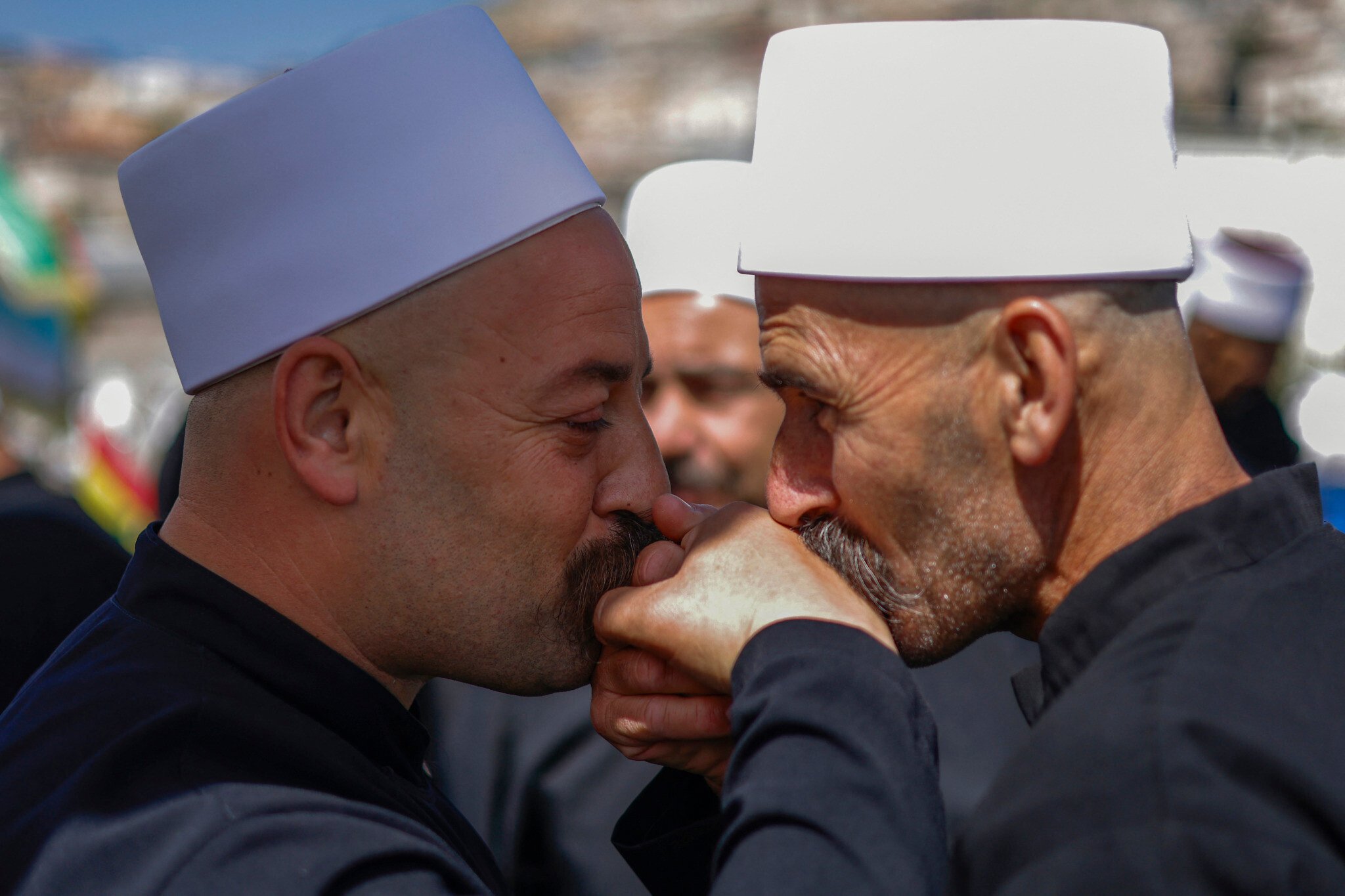
YARKA — In her spacious living room, Samra Atalla served her guests freshly squeezed pomegranate juice, dates, and cookies as her phone beeped every few minutes with notifications from Syrian Druze friends and family members reporting on the community’s situation.
“The Druze in Syria are in a tough place,” Atala, 58, told The Times of Israel last week in Yarka, a Druze village in the Western Galilee. “But we’re not going to abandon them.”
Violent confrontations between the Druze and official Syrian security forces in Druze strongholds across Syria left some 100 people killed and scores wounded in recent weeks.
Israel has vowed to protect the Syrian Druze community, with the Israel Defense Forces recently striking targets in the country as a “warning” to the new regime. The IDF has also opened a temporary medical facility in southern Syria to treat wounded Druze after more than 30 injured were evacuated to Israeli hospitals.
Atalla’s concern for the Druze in Syria is typical of the 150,000-member Druze community in Israel, which has organized protests and charity campaigns in an effort to protect the 700,000 or so Druze on the other side of the border.
Since the start of the war in Gaza in October 2023, Israel’s Druze have been demanding more for themselves as well. The fall of 13 Druze soldiers fighting against the terror groups Hamas and Hezbollah and the deaths of 12 Druze children in Majdal Shams in a Hezbollah rocket attack have prompted Druze in Israel to dig in deeper to protect their rights within the country while stressing their unique identity as a minority that has always been loyal to Israel.
Now, with the violence against Druze inside Syria, their Israeli cousins are demanding that the government in Jerusalem defend their Syrian brethren.
“Maybe God put the Druze here in Israel to save the Druze there,” Atalla said.
Syria’s new leader, Ahmad al-Sharaa, a former member of an al-Qaeda-linked terror group who defeated Bashar al-Assad’s regime in December, has vowed that his new government will protect religious minorities. However, since his rule began, hundreds of Alawites — former Assad loyalists — have been killed, some of them by brutal executions.
Syria is mostly settled by Sunni Muslims, and Druze make up about three percent of the population. The government is now run by Islamists, some of whom are linked to extremist groups.
The latest round of violence against the Druze began in March after a purported recording of a Druze man cursing the Prophet Mohammad circulated on social media.
Sheikh Muafak Tarif, the spiritual leader of the Israeli Druze community, said the clip was “a fake” while speaking at a conference on “The Druze and the Security of Israel: The blood alliance in practice” at Western Galilee College in Acre on May 5.
Tarif condemned what he called the world’s “silence” after Syrian security forces attacked Druze communities and warned: “After October 7 and what Hezbollah did, Israel cannot allow extremist terror groups to be on its northern border.”
Although Druze representatives in a Damascus suburb recently signed an agreement with Syrian regime representatives according to which the Druze would hand over their heavy weapons and the regime’s security forces would be reinforced in the area, Atalla said she believes the deal is a “trick.”
Sharaa, who has tried to distance himself from the violent extreme Islamists, is “lying,” Atalla said.
She said even after the agreement, Islamic extremists shaved off Druze clerics’ mustaches to “humiliate” them. According to Syrian news sites, hundreds of Druze students have left universities in Damascus, Aleppo and Homs because of a sharp increase in violence.
The Druze are a mystic sect that broke away from Shiite Islam in the 11th century. There are approximately one million Druze in the world. Most live in Syria, Lebanon, Turkey, Jordan and Israel. Their religion is secret, but they consider the figures of Abraham, Moses, Jesus and Mohammed to be prophets. Druze do not accept converts.
Atalla was born in Majdal Shams on the Golan Heights in 1966, the year before Israel captured the Golan Heights from Syria in the 1967 Six Day War. Israel annexed the area in 1981 and today, approximately 29,000 Druze live there, some 20% of whom have Israeli citizenship.
For years, Atalla ran a successful clothing store in Majdal Shams, learning the business in shops in Tel Aviv. She moved to Yarka after her marriage several years ago.
Although she said there’s more security for the Druze in Israel, she’s still a “daughter of Syria.”
“It doesn’t matter which government is in control of the area,” she said. “The most important thing is that we stay in our house, on our land.”
A few miles away, in Tefen Industrial Park, Rabea Bader, 38, is helming the mic as the CEO & editor in chief of the North Radio station, 104.5 FM. The head of the first Hebrew-language radio program about Druze talked about the three basic principles of the community.
“We don’t fight with people and treat others with respect until they threaten our honor, our religion or our land,” Bader said, as upbeat Mizrahi music was being broadcast from a sound room at the radio station.
He said that contrary to what the Israeli media has reported, there was “no massacre of the Druze because they have weapons, even heavy weapons, which they will not give up to al-Sharaa.”
“He wears a suit and tries to show that he is liberal,” Bader said, “but the Druze won’t let him do to them what he did to the Alawites or what he might do to the Christians.”
“The Druze in Syria are stronger than people realize. They will not let people hurt the things that are holy to them. They will defend themselves, even if it means losing their lives,” Bader said.
Bader and Lorena Kizel Khateeb, 28, a Druze journalist and social activist, are co-hosts of “The Voice of the Druze,” which is broadcast each week on 104.5.
On the May 9 program, they hosted Reda Mansour, who had just retired from his position at the Israel Foreign Ministry after 35 years of service.
Speaking of the crisis in Syria, Mansour said that one of the challenges to unifying Syria is its lack of a coherent and cohesive Syrian identity. This, he said, is also a challenge facing Israel, which is composed of minorities and different religions and ethnic groups.
“We don’t have a civil war, but we have to figure out how to create an Israeli identity” to guarantee Israel’s future, Mansour said.
Bader said that he served in the IDF and fought in the First Lebanon War in 2006.
“I don’t have to prove my loyalty to the state,” he said. “I honor the flag and the anthem.”
But he does have a problem with the nation-state law, passed in 2018, which states that Israel is the “national home of the Jewish people.” The law is seen by the Druze community — as well as other non-Jewish minorities — as exclusionary.
“The law defines me as a second-class citizen,” Bader said emphatically. “It implies that the country isn’t mine. But the truth is that I’m not a guest here. I’m also a landlord.”
He said that every day the law isn’t canceled is a “shame” for the state.
Khateeb echoed Bader’s feelings in a phone conversation with The Times of Israel.
“We are an inseparable part of Israeli society, contributing to it and being shaped by it,” she said. “We protest and criticize the country when necessary, and we don’t give up on our values. There are challenges and hardships we face — and there are certainly some — but we manage to thrive, stay true to ourselves, and live with pride.”
On the May 9 radio program, Khateeb said she recently received a phone message from a man in Syria who wrote her, “You are lucky to have been born in a country that respects you and who you are, regardless of your identity.”
The words moved her, she said, reminding her of “how truly fortunate we are to have been born in the State of Israel. In the year 2025, when people in Syria are being murdered because of their identity, we need to keep things in perspective. This is not something to take for granted.”

